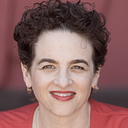What Autism Can Teach Us About Overcoming Digital Burnout
Learning to cope in an age of digital overload
 “I remember when I was growing up, we didn’t have cell phones,” Marnie Kunz says wistfully. “I remember just checking the answering machine when you got home.” The New York-based entrepreneur and the founder of Runstreet, learned to handle texts and email, “but with social media [it] got to be too much. I turned off Facebook and Instagram notifications, but then sometimes, I’ll be organizing an event, go on Facebook to post it, and before I know it I’m looking at photos of someone’s family trip.”
“I remember when I was growing up, we didn’t have cell phones,” Marnie Kunz says wistfully. “I remember just checking the answering machine when you got home.” The New York-based entrepreneur and the founder of Runstreet, learned to handle texts and email, “but with social media [it] got to be too much. I turned off Facebook and Instagram notifications, but then sometimes, I’ll be organizing an event, go on Facebook to post it, and before I know it I’m looking at photos of someone’s family trip.”
Everywhere you look, there are signs that individuals, organizations, and entire societies are struggling with the challenge of information overload and digital distraction. According to the Pew Research Center, nearly 7 in 10 Americans feels overwhelmed by the volume of news media today — a phenomenon that, according to the integrative health guru Andrew Weil, “increases stress, with all of its predictable consequences for physical and emotional health.”
But the search for solutions is a race against the clock, because the problem of digital overload is steadily intensifying.
“The future is going to be more distracting for people who don’t have the tools to manage distraction,” predicts Nir Eyal, an…

